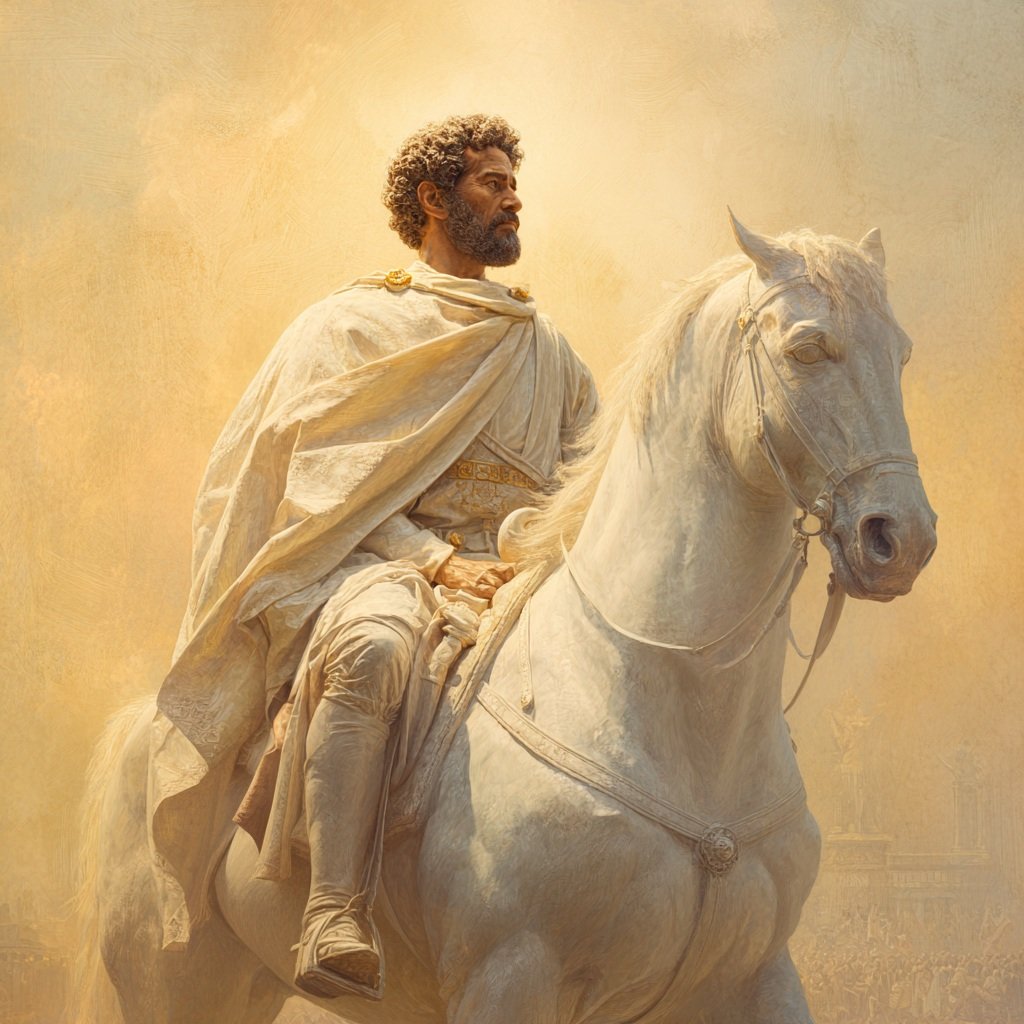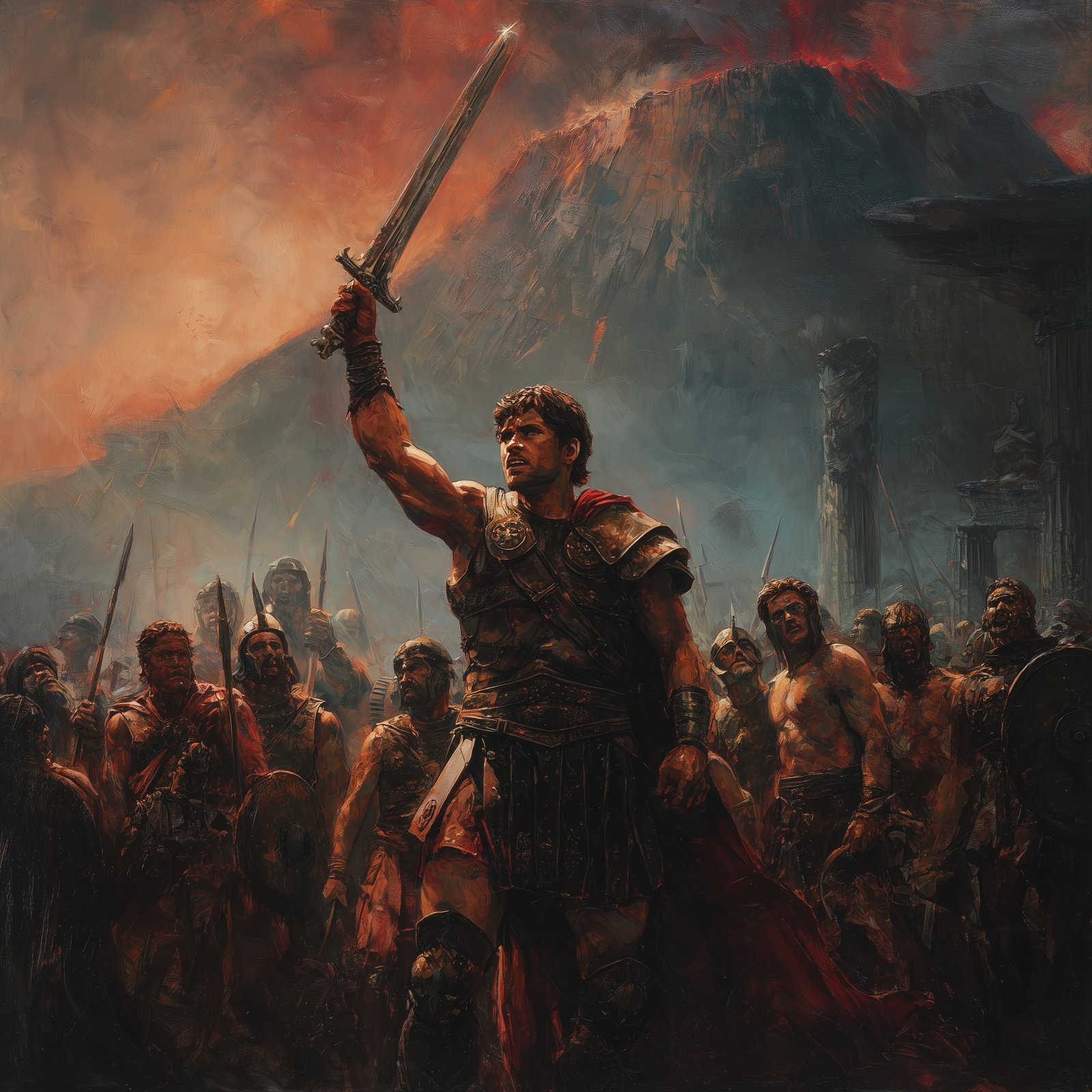Marcus Aurelius: Emperor, Philosopher, and Teacher of Life

Marcus Aurelius, Roman Emperor from 161 to 180 AD, ranks among the most significant and respected rulers of antiquity. He was not merely the leader of the most powerful empire of his time — he was also a profound thinker, philosopher, and a man of exceptional moral integrity. Throughout his life, he strove to live in accordance with virtue, reason, and inner discipline, guided by Stoicism, the philosophy that became his spiritual foundation.
At a time when power often meant selfishness and brutality, Marcus Aurelius demonstrated that even an emperor could be humble, just, and a servant of higher ideals. His life story — marked by challenges, suffering, but also wisdom and courage — is a testament to the fact that it is possible to find balance and act with calm even in the midst of chaos.
His writings and philosophy continue to inspire millions of people around the world, especially those seeking answers to existential questions, inner strength, and a path to deeper understanding in the fast-paced and uncertain world of the 21st century.
The Humble Philosopher on the Throne
Marcus Aurelius was born in 121 AD in Rome into a prominent and respected aristocratic family. From an early age, he stood out for his exceptional discipline, calm demeanor, and a profound thirst for knowledge. Raised under the guidance of the finest teachers of his time, he developed a deep interest in philosophy — particularly Stoicism, a school of thought that teaches acceptance of what cannot be changed and wise action where change is possible. This philosophy became not only his personal compass but also the foundation of his future rule.
In 161 AD, he ascended to the imperial throne. Although he could have led a life surrounded by luxury, comfort, and indulgence, he chose instead a path of self-discipline, simplicity, and responsibility. He firmly believed that power is not a privilege but a duty — and he shaped his entire lifestyle around that conviction. He remained loyal to the ideals of virtue, reason, and justice, even when the empire was plagued by epidemics, famines, internal unrest, and relentless wars along its borders.
As a ruler, he stood firm amid the turbulence of history, never losing his inner balance. It was precisely in these trying times that his ability to apply philosophical principles in practice became most evident — not as a theory for a comfortable life, but as a tool for survival, service, and leadership with humanity.
Meditations — Wisdom for a Lifetime
One of the most valuable spiritual legacies left by Marcus Aurelius is his work Meditations (originally titled Ta eis heauton, meaning “Thoughts to Himself”). It was never meant to be published — it was a private journal, a collection of reflections, doubts, encouragements, and moral reminders he wrote for himself. In the midst of military campaigns, political turmoil, and personal struggles, he used writing as a way to preserve his inner strength, courage, and compassion.
Although intended as personal notes, the depth and sincerity of his thoughts have made Meditations a timeless source of wisdom. It speaks to readers across centuries, cultures, and backgrounds, offering practical and philosophical guidance in the face of life’s uncertainty and complexity.
Some of the key ideas that emerge from his writings include:
- Thought shapes reality.
“Our life is what our thoughts make it.” Marcus believed that how we think defines who we become, how we act, and how we cope with adversity. - Acceptance of fate.
In true Stoic fashion, he emphasized that there is no use in resisting what we cannot change. Events themselves are neither good nor bad — it is our judgment of them that gives them meaning. - The obstacle becomes the path.
He often reminded himself that hardships are not just to be endured but embraced. They are teachers. As he wrote, “The impediment to action advances action. What stands in the way becomes the way.” - Leadership as service.
Despite his immense power, Marcus saw himself first and foremost as a servant of the common good. In Meditations, he repeatedly asserts that anyone who holds influence has a duty to act justly, protect the weak, and lead not with pride but with humility and purpose.
An Emperor in Times of Crisis
The reign of Marcus Aurelius was marked by some of the most severe challenges in the history of the Roman Empire. The Antonine Plague — a deadly epidemic that swept across the empire — claimed the lives of millions, affecting both civilians and soldiers. At the same time, the empire faced growing pressure from barbarian tribes, particularly the Germanic peoples threatening the northern frontiers. Rome was under siege from within and without, and in such times, many rulers might have turned to brutality, fear, and authoritarian control.
Marcus Aurelius, however, resisted the temptation to govern as a tyrant. Instead, he upheld his humanity and philosophical discipline. He did not lead his armies from the comfort of a palace — he led them personally, side by side with his soldiers. He spent years in cold, inhospitable provinces, sleeping in tents and sharing in the hardships of the front lines. He saw himself not as someone above others, but as one of them — a man among men, despite the crown on his head.
His decisions were guided by reason, justice, and compassion. Rather than resorting to ruthless revenge against his enemies, he often sought reconciliation, peace treaties, and long-term stability. Even in the midst of military chaos, he remained loyal to his Stoic principles — to rule not through fear, but through wisdom; not with brute force, but with strength of character.
A Message for Today
Even after nearly two thousand years, Marcus Aurelius offers us an incredibly relevant message: true peace, freedom, and the meaning of life do not come from external circumstances but from the way we think and act. According to him, mastering one’s own mind — not the world around us — is the key to inner stability. Whoever can keep their mind clear, focused, and free from passions retains strength even amid chaos.
In an age overwhelmed by information, distractions, uncertainty, and pressure to perform, the words and example of Marcus Aurelius act as a quiet compass. They remind us that honesty, discipline, humility, and service to others are not weaknesses but expressions of inner strength.
His philosophy challenges us to live in harmony with ourselves — to live a life that is not enslaved by external events but is a conscious and responsible expression of our character. Marcus Aurelius teaches that every person, regardless of their circumstances, has the power to choose to do what is right — and in that lies true victory.

